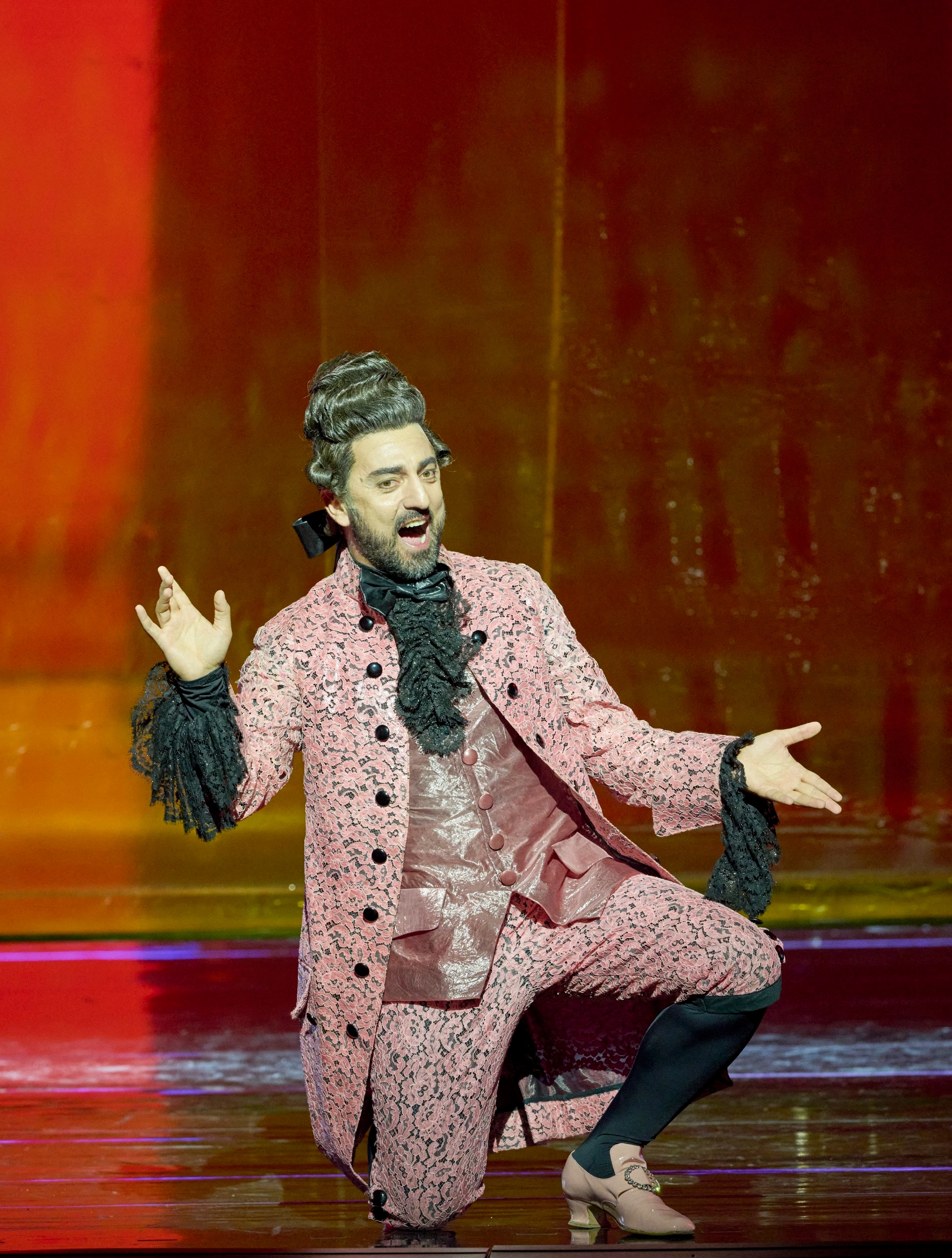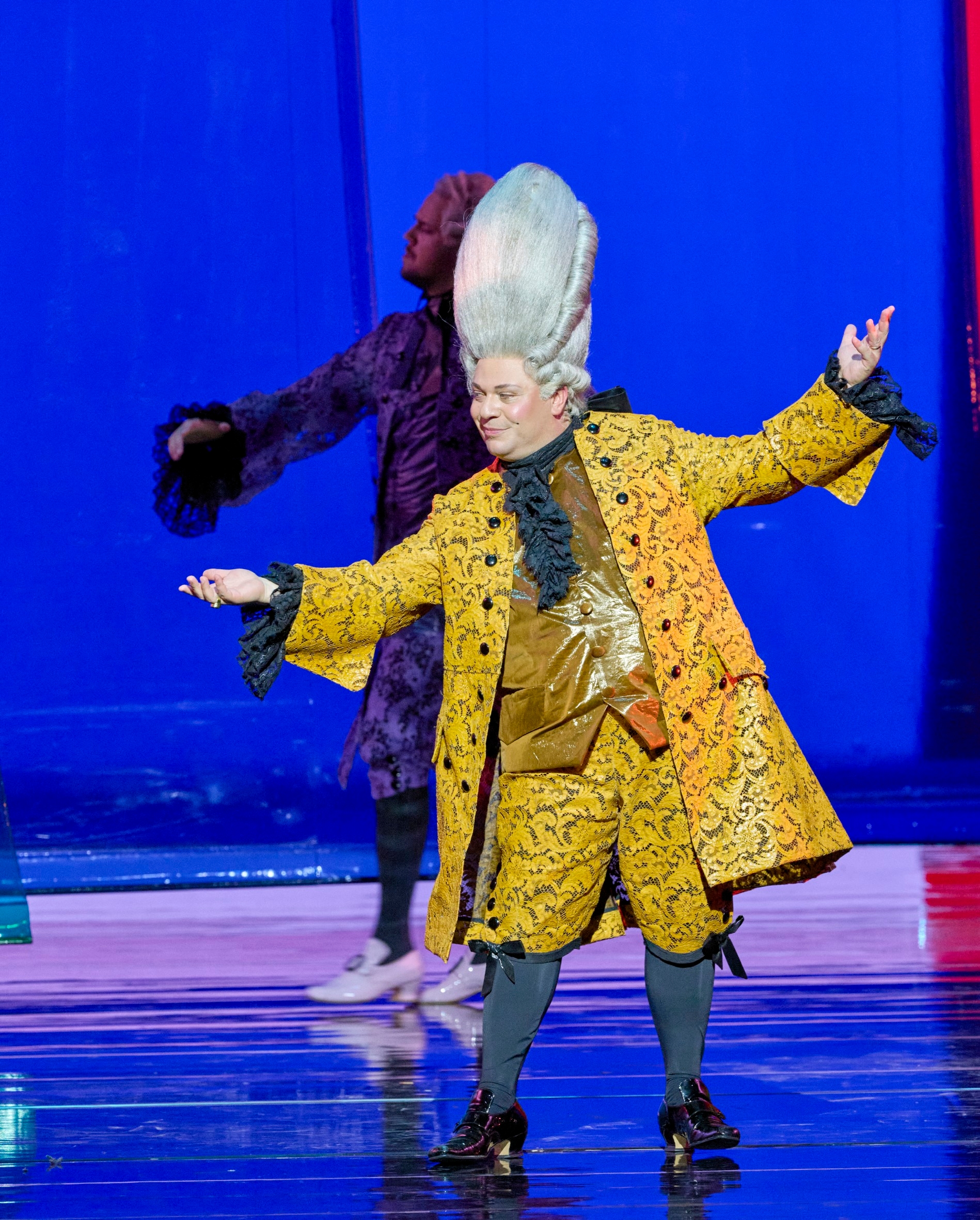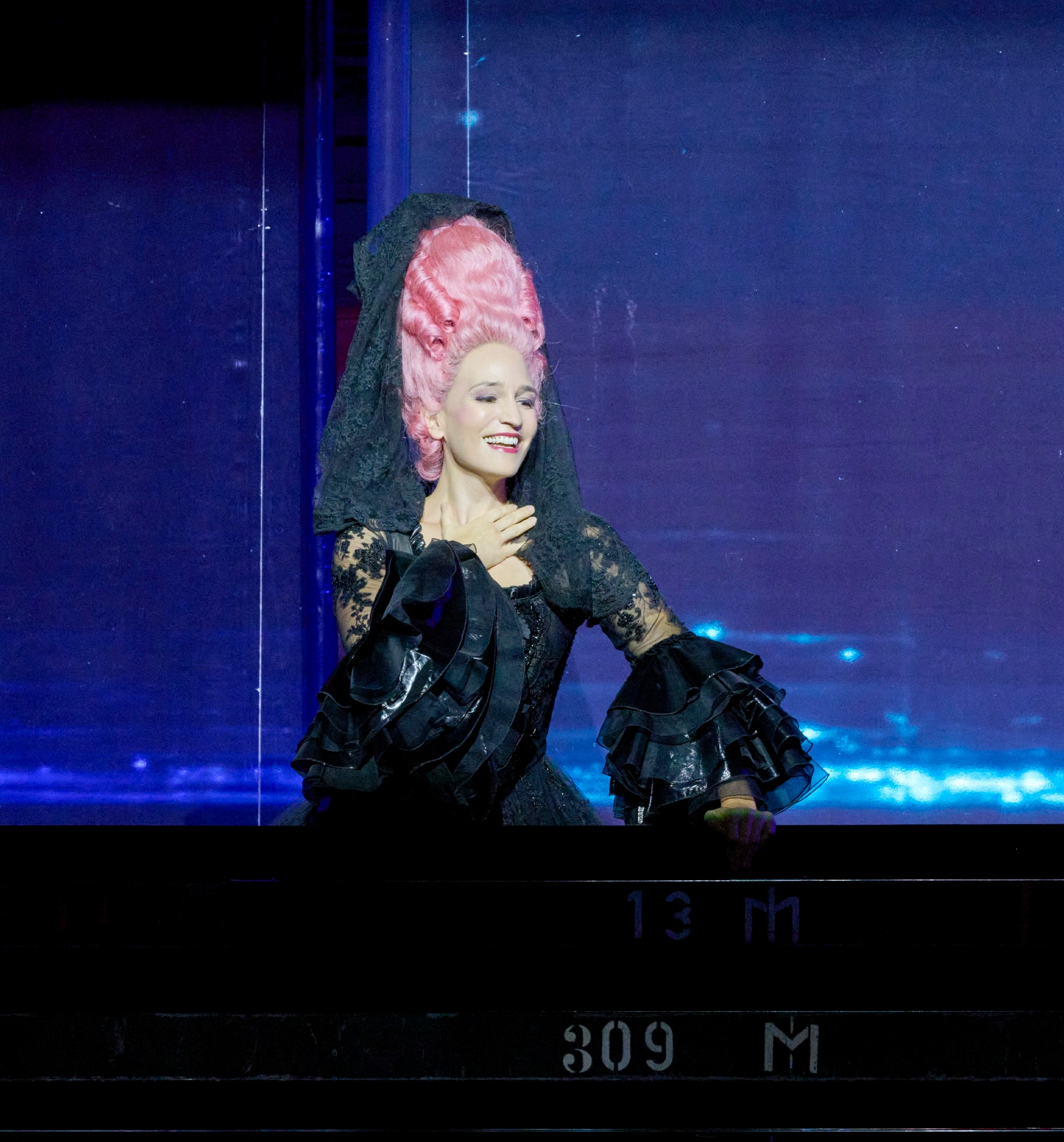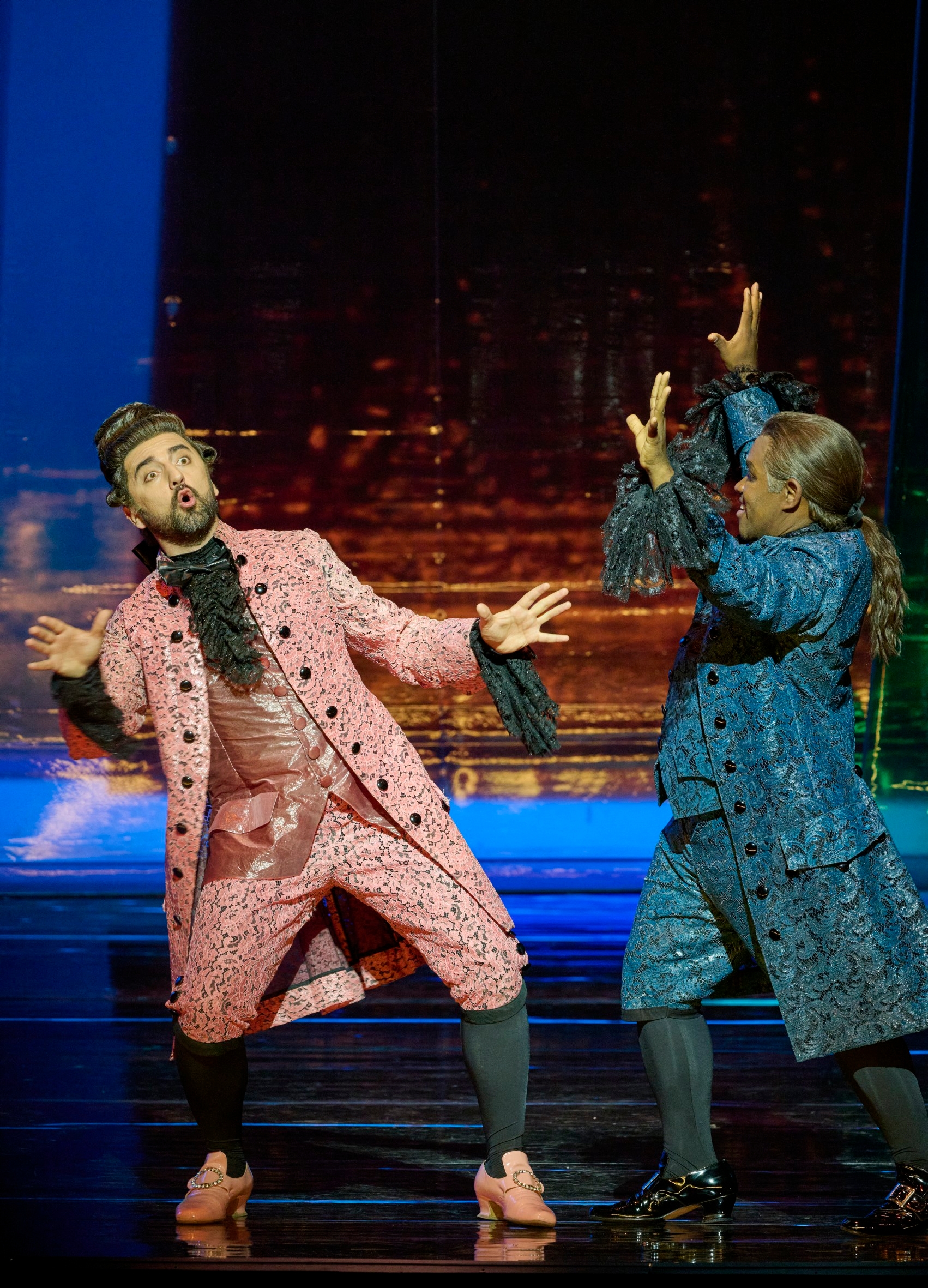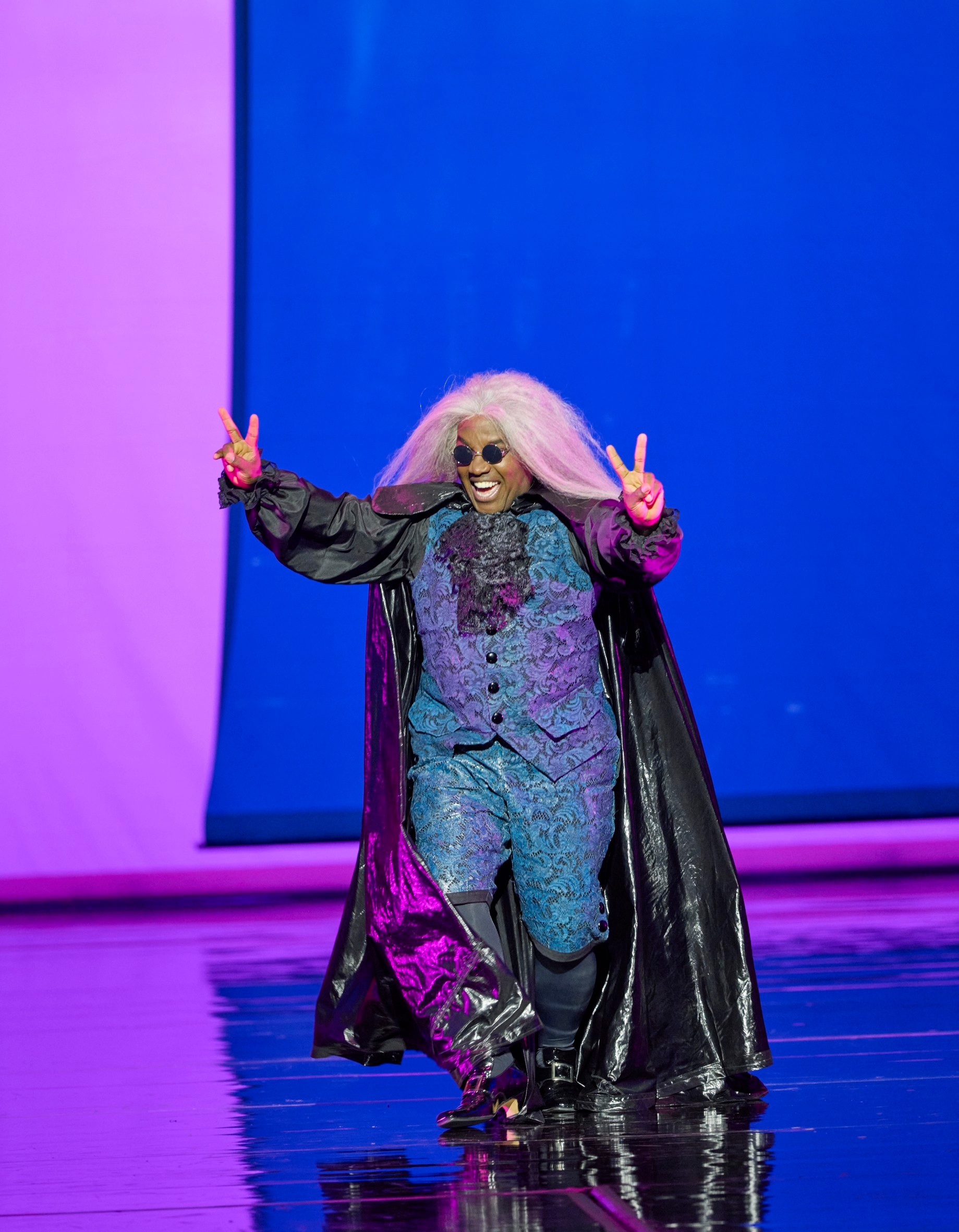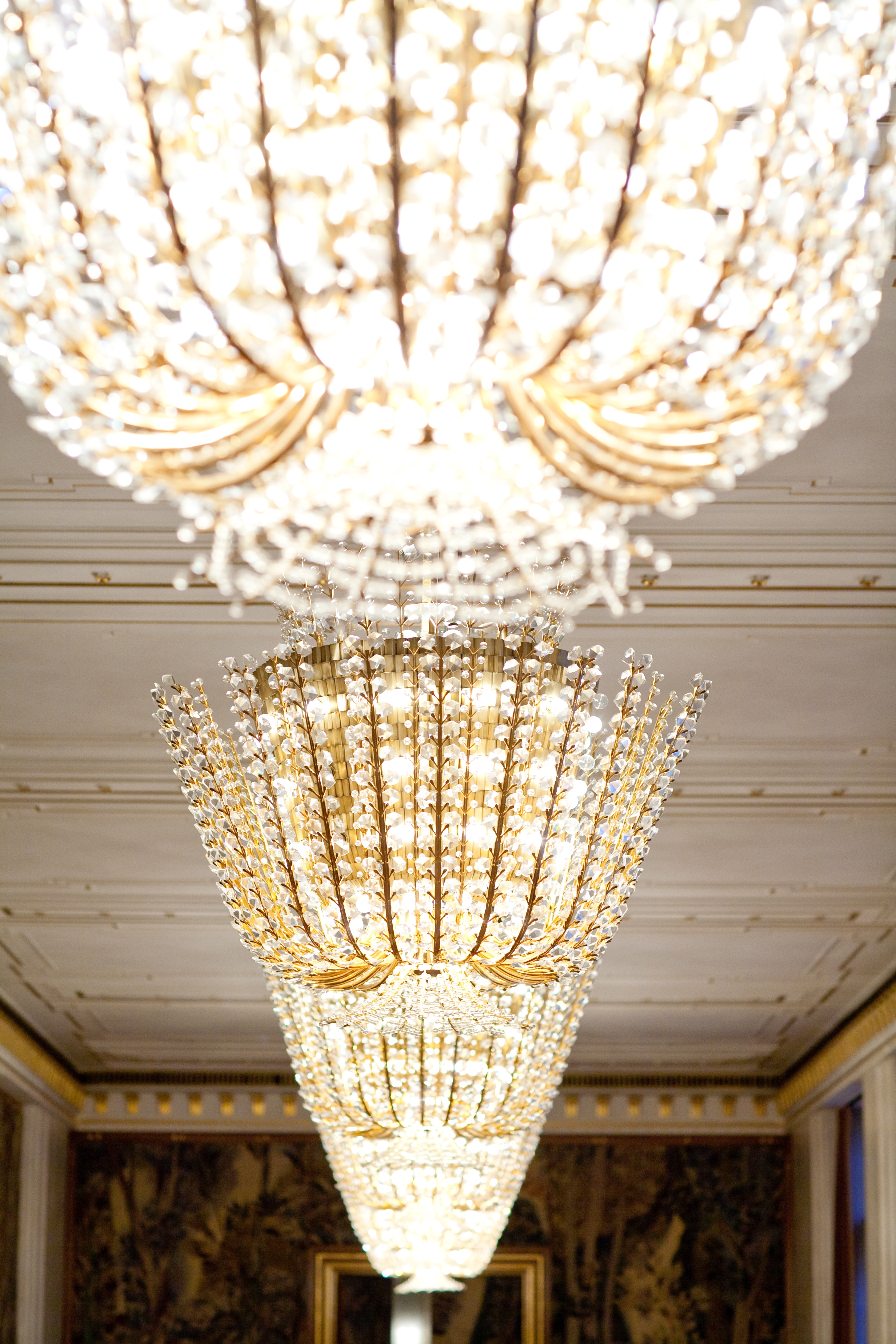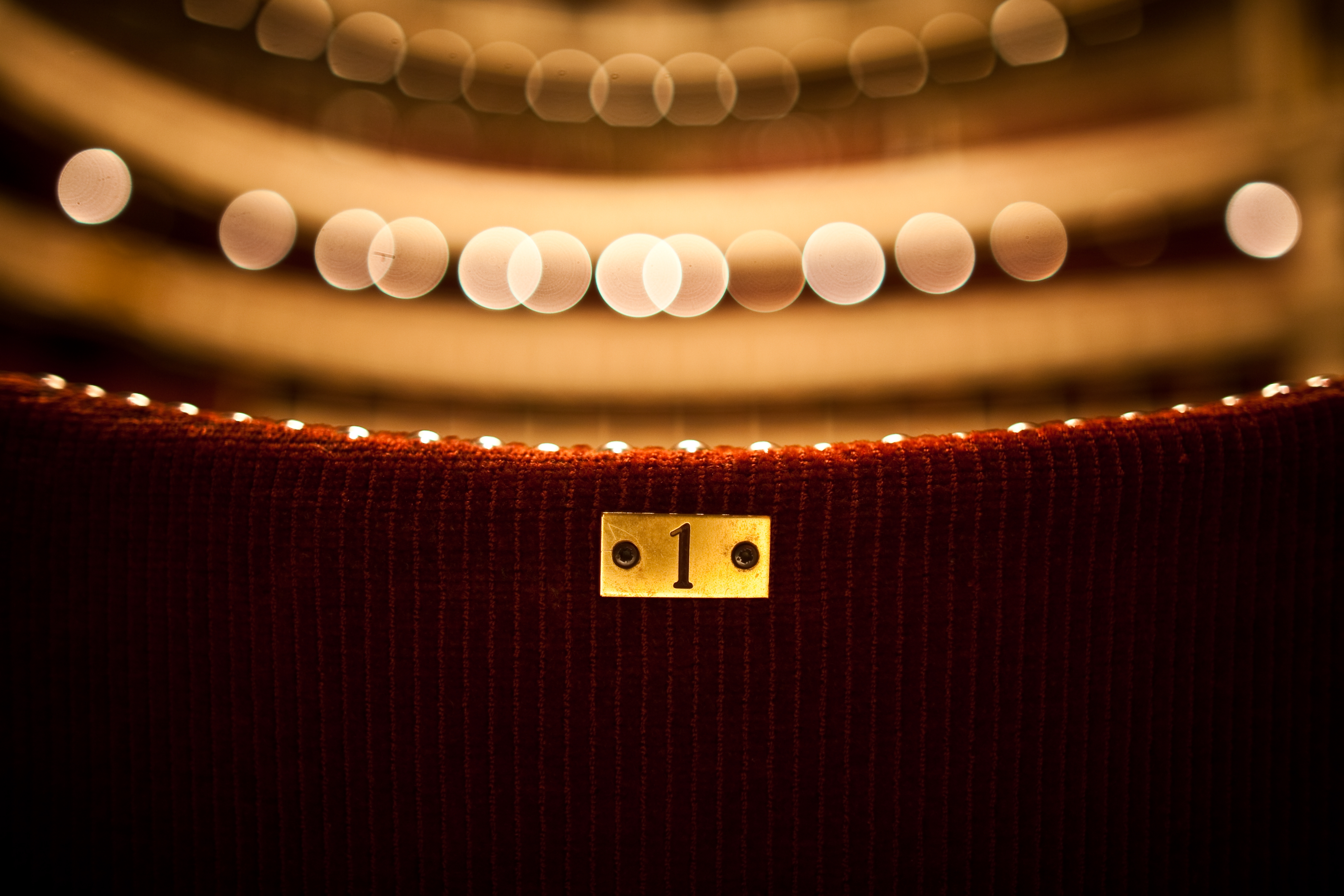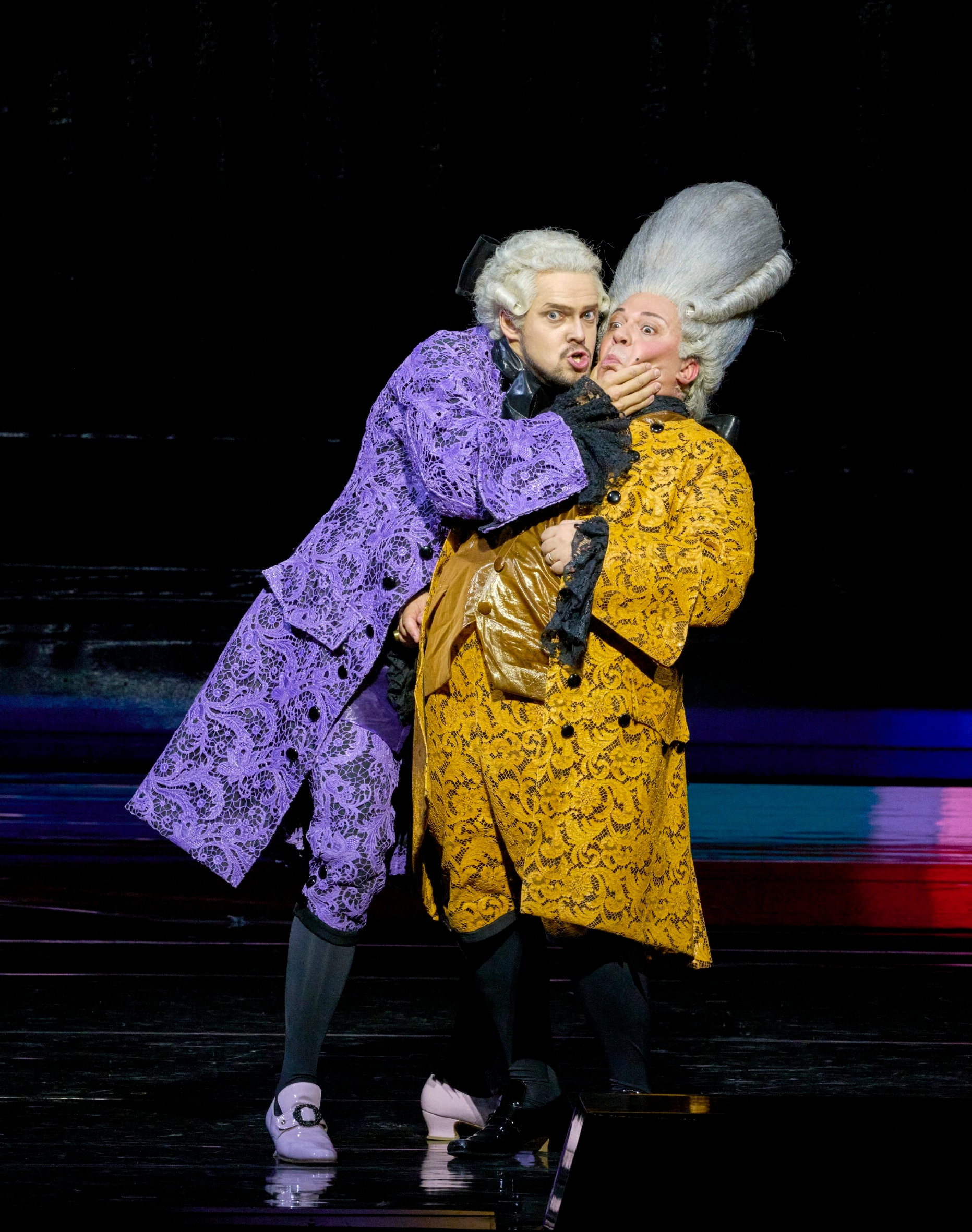
Short Summary
The Count of Almaviva is in love with Rosina, and Rosina loves the Count of Almaviva.
So everything would be wonderful - if it weren't for Don Bartolo, Rosina's guardian, who won't let her out of the house or out of his sight. He wants to marry Rosina himself and can rely on the support of music teacher Don Basilio, who provides him with information about his rival. The Count's dedicated helper is the title character: Figaro, Barber of Seville and the Count's former servant. His many pieces of good advice result above all in stunningly funny stage scenes and at least do not prevent the two lovers from finding each other in the end.
Il Barbiere
di Siviglia
Storyline
In front of Doctor Bartolo's house
Under the balcony of a stranger whom he has admired from afar for weeks, Count Almaviva sings a serenade, accompanied by musicians engaged by his servant Fiorello. The barber Figaro appears.
He is a former servant of the Count and knows the beautiful stranger: it is Rosina. As the barber to her guardian, Doctor Bartolo, he has access to his house. Rosina appears on the balcony and drops a letter before Doctor Bartolo can intervene. In the letter, she asks her admirer to explain his intentions and expresses her absolute determination to "break her chains".
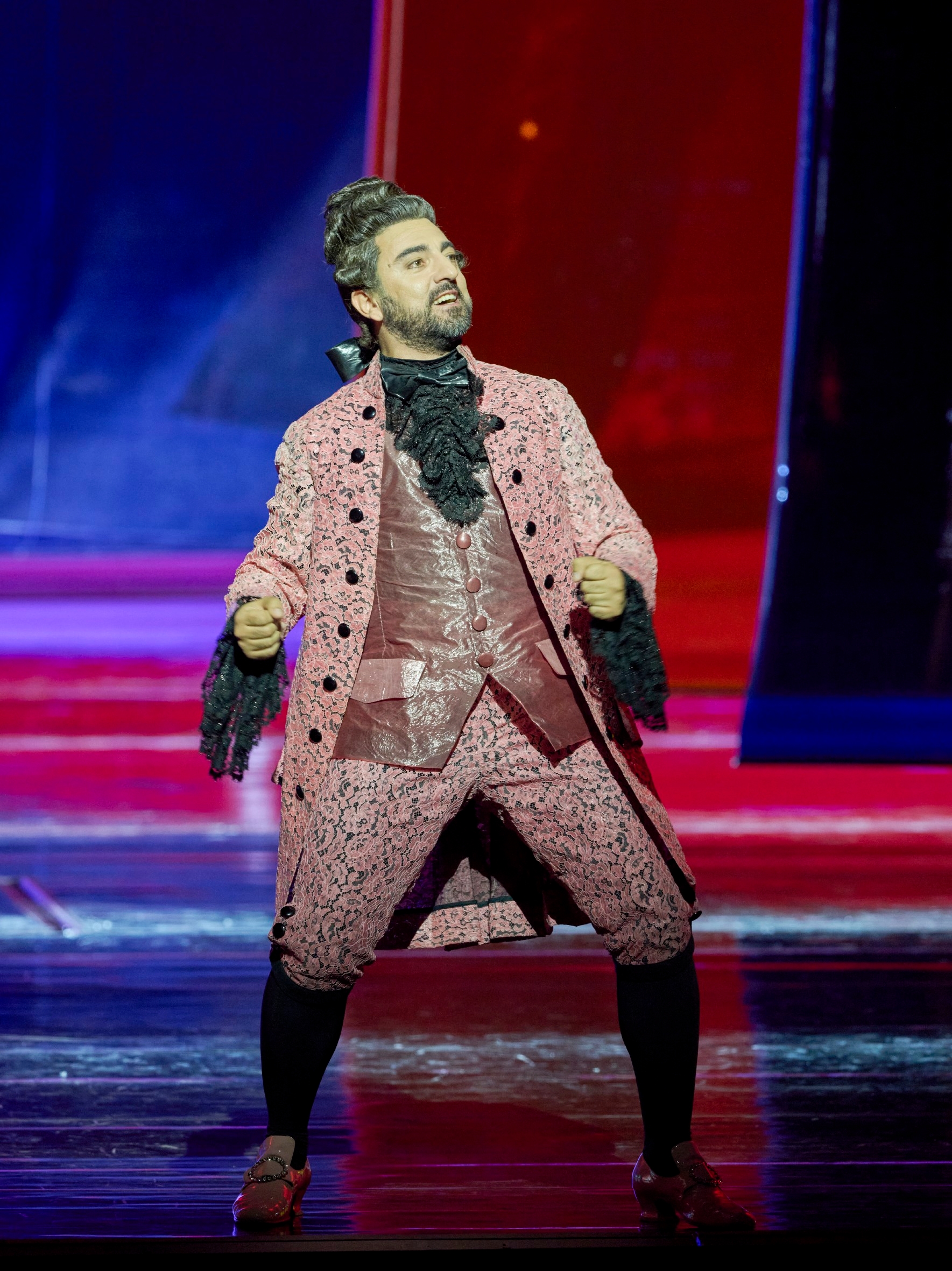
The Count introduces himself to Rosina with a song as the poor student Lindoro - the young woman should choose him out of love and not because of his high status. Figaro explains that Doctor Bartolo wants to marry Rosina in order to obtain her dowry. He suggests to the Count that he should disguise himself as a soldier and enter the house with a billeting order. To appear harmless, he should also pretend to be drunk.
In the house of Doctor Bartolo
Rosina is determined to use all her skill and disobedience to win Lindoro despite Bartolo's resistance. Doctor Bartolo suspects that Rosina and Figaro are up to something against him.
He first questions Rosina, then the housekeeper Berta and the servant Ambrogio, but receives no information. Rosina's music teacher Don Basilio tells Doctor Bartolo that Rosina's secret admirer, Count Almaviva, has been seen in the city. Doctor Bartolo decides to marry Rosina the very next day. Don Basilio proposes to discredit the Count by slandering him.
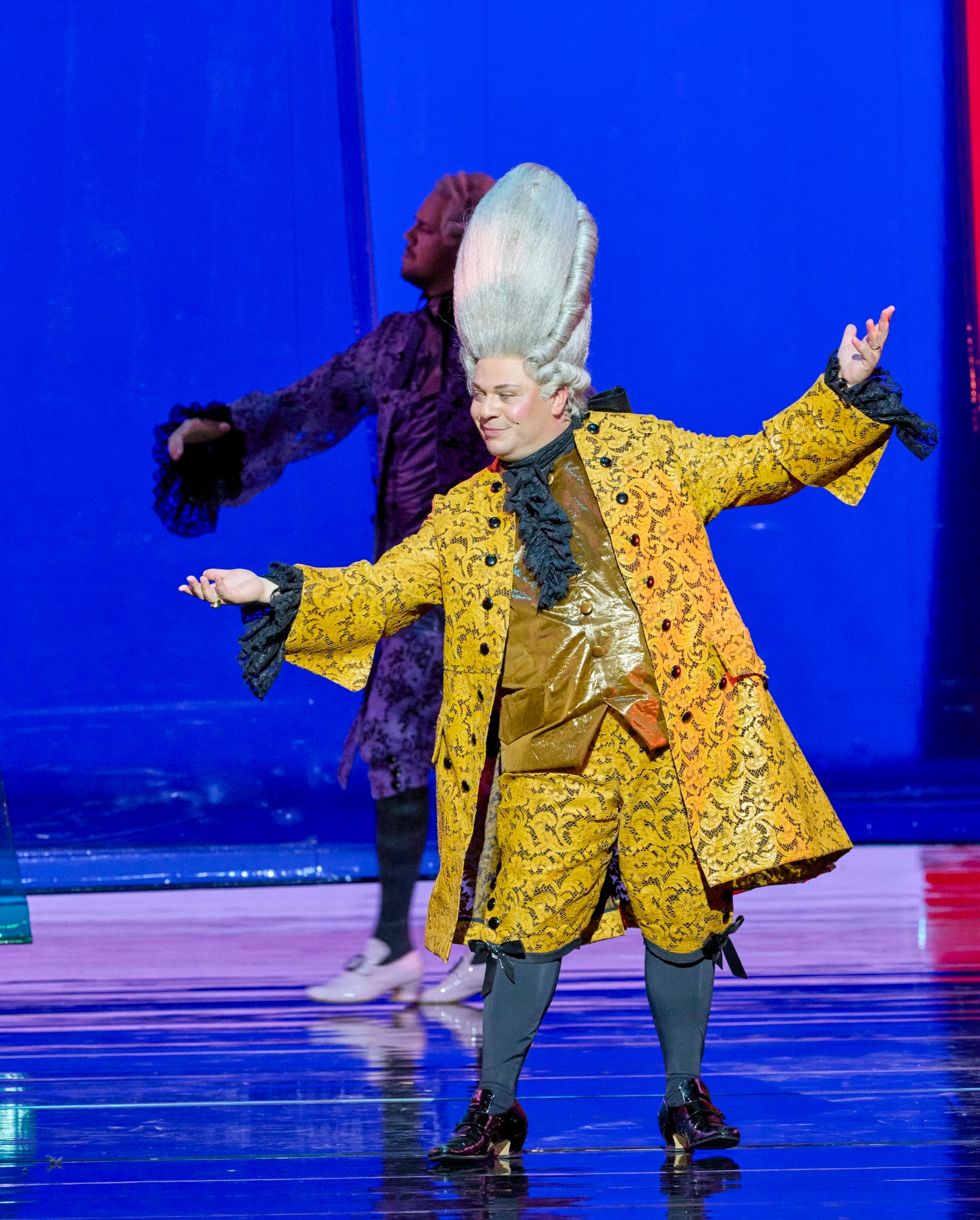
Figaro has overheard them and tells Rosina about Bartolo's plans. Rosina is particularly interested in Lindoro, whom she has seen with Figaro. Figaro claims that Lindoro is his cousin and is very much in love with Rosina. Figaro demands a letter for Lindoro - but Rosina has already written it. Bartolo discovers Rosina's secret correspondence and announces that she is to be watched even more closely.
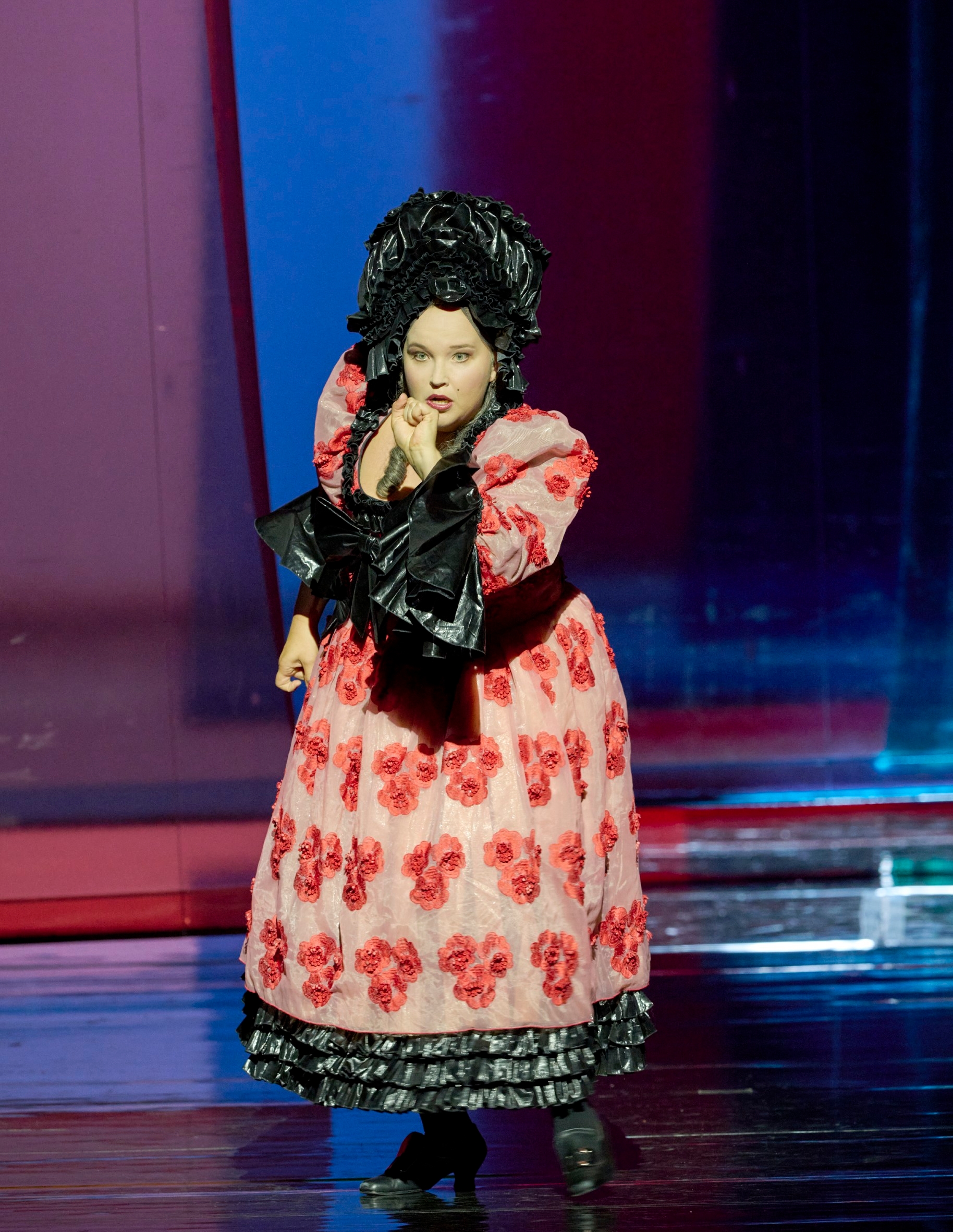
Disguised as a drunken soldier, the count breaks into Bartolo's house. His attempt to deliver a letter to Rosina leads to a riot, which calls the town guard to the scene. Their officer wants to arrest the supposed soldier as a troublemaker. When he inconspicuously reveals himself to be the Count, he immediately rescinds his order - to the utter dismay of everyone present.
In the house of Doctor Bartolo
The Count appears again: he has now disguised himself as the music teacher Don Alonso and pretends to be standing in for Don Basilio, who is ill.
He tells the suspicious Bartolo that he is staying at the same inn as Count Almaviva, where he has come across an amorous ticket from Rosina. He wants to use it to discredit the Count with Rosina. Bartolo agrees and calls Rosina to a singing lesson. Rosina recognizes her admirer Lindoro in Don Alonso, and Figaro arrives to shave Doctor Bartolo. Following a tip from Rosina, he manages to steal the key to the balcony door. The sudden appearance of Don Basilio threatens to blow the Count's cover. Inconspicuously, he slips Don Basilio a gift of money and with combined forces, Don Basilio is forced out of the house.
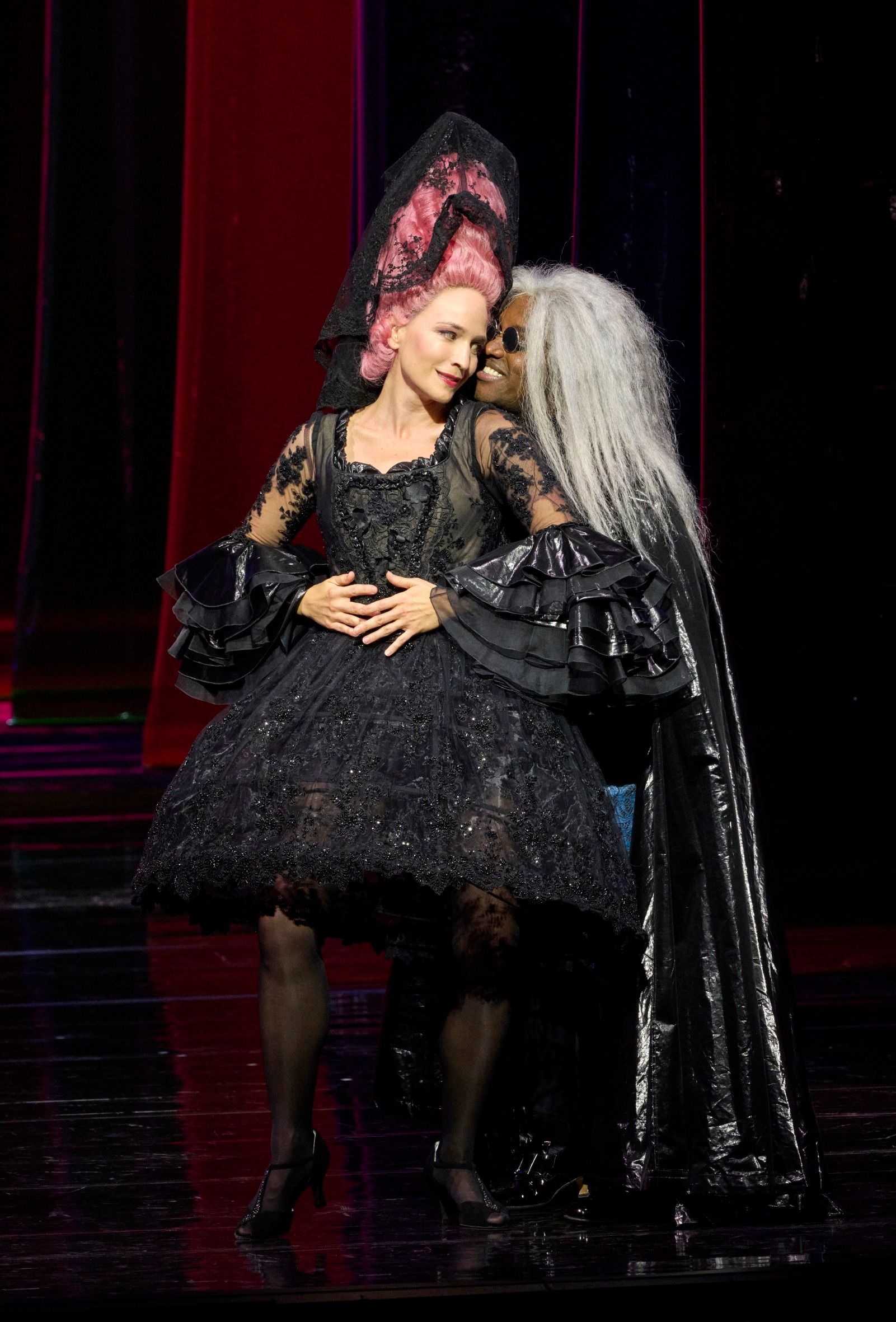
Figaro tries to distract Bartolo from the two lovers, but Bartolo hears a careless word from the Count and sees through the deception. The Count and Figaro flee. Don Basilio expresses his suspicion to Bartolo that Don Alonso has been sent by Count Almaviva. Doctor Bartolo now wants to push ahead with his marriage to Rosina all the more urgently and sends Don Basilio to fetch the notary. Bartolo presents Rosina with the ticket as proof that Don Alonso and Figaro wanted to drive her into the arms of Count Almaviva. Rosina, stunned by this news, agrees to marry Bartolo. She also reveals that Figaro and her suitor are planning to enter the house at midnight to abduct her. When Figaro and the Count arrive, Rosina pushes back the supposed matchmaker Lindoro, whose deception she believes she has seen through. When Lindoro reveals himself to be Count Almaviva and confirms the seriousness of his intentions, Rosina is overjoyed.
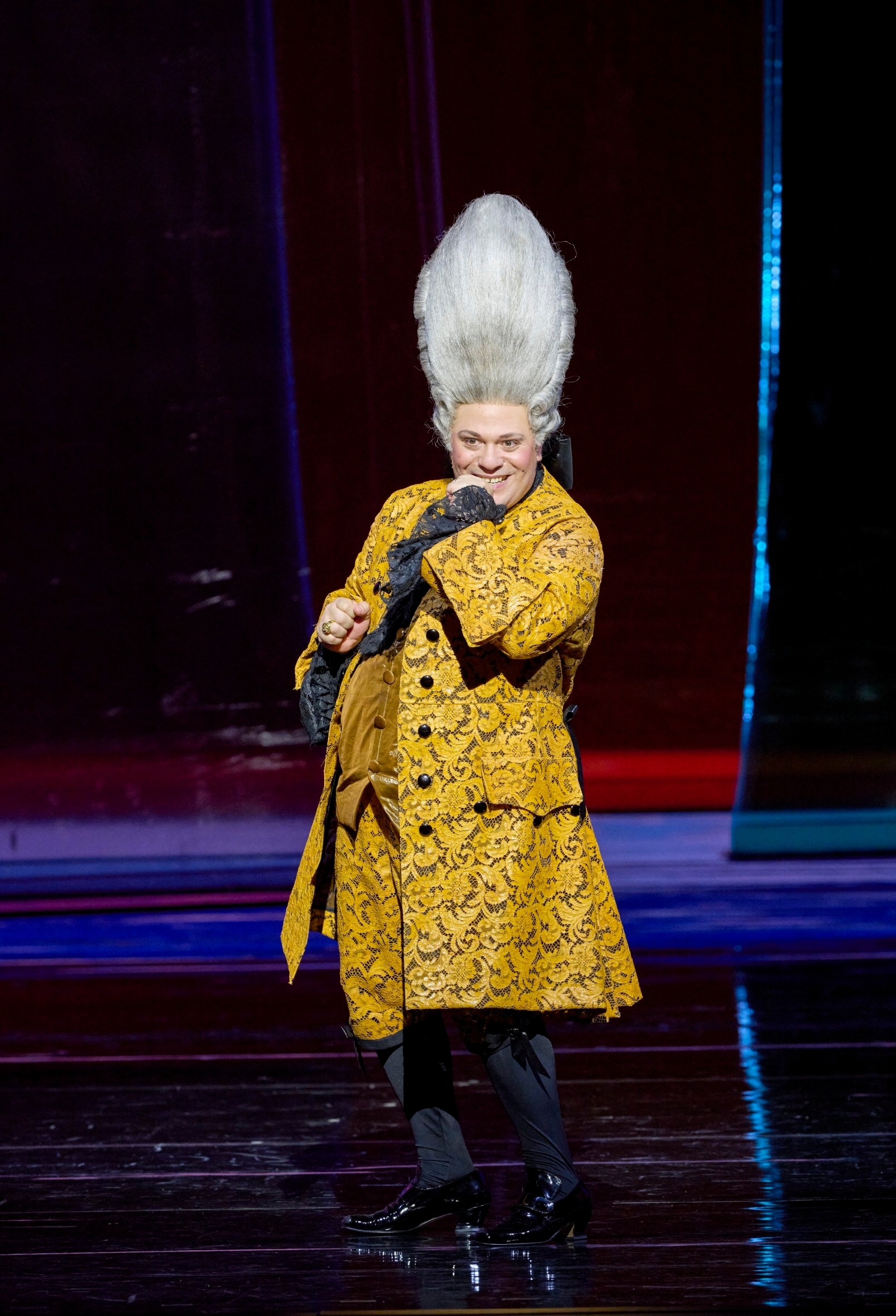
Don Basilio appears with the notary. Figaro explains that those present are his niece and Count Almaviva, whose wedding the notary is to perform that evening in Figaro's house. The notary has the marriage contract with him. The Count offers the reluctant Don Basilio a choice between a precious ring and two bullets in the head. Don Basilio chooses the ring and signs the marriage contract as best man. Doctor Bartolo has summoned soldiers and demands the arrest of the burglars. When Count Almaviva reveals himself to him, refers to the valid marriage contract and gives Bartolo Rosina's dowry, the latter accepts his defeat.
Herbert Fritsch's production of Barbiere di Siviglia goes back to the roots of the work in the commedia dell'arte in order to create something completely original from there. This creation is initially literally in the hands of the singers, who fill the commedia types from which Rossini and his librettist Sterbini started out with life in the form of the "enlargement" into the grotesque that characterizes Herbert Fritsch's directorial work. All of this is done entirely without props, but with a remarkable set: Victoria Beer's costumes transfer the rococo fashion and the grotesque "Maccaroni" wig fashion of early English dandies from the 18th century into a fantasy world, which is ideally represented in Herbert Fritsch's set design. There, large-scale colored foil panels form constantly changing scenes under computer control: Alleyways, squares, buildings, or simply places that become the stage for the acting characters. The stage is constantly in motion, sometimes more strongly, then more subtly, but without ever standing still. The perfect ambience, but also the perfect metaphor for Rossini's Barbiere di Siviglia.
Figaro's cavatina "Largo al factotum" is the signature melody of the Barbiere di Siviglia, but Rossini's masterpiece is peppered with many more gems. The coloratura cavatina "Una Voce Poco fa", for example, gives Rosina's interpreters brilliant opportunities to shine, and the same applies to the Conte's "Ecco ridente in cielo". Librettist Cesare Sterbini provided Rossini with ideal occasions to make music and thus made a decisive contribution to the enormous stage effectiveness of the work, for example in the finale of the first act, where the controlled chaos of a "Rossini crescendo" reigns: the image of a "hellish forge" conjured up in the text is painted with relish by the music with the sound of hammers and anvils. The busy composer had to write his most famous work in the shortest possible time - even reputable sources assume that the composition could not have taken more than two weeks. In order to achieve his goal in such a short time, Rossini frequently used material from his earlier works; one example of many is the thunderstorm music from the second act, which had already been used in the two operas Il pietro di Paragone and L'occasione fa il ladro, which premiered in 1812.
Figaro, the barber of Seville, introduces himself as the "factotum of the whole city", a helper in all situations. Like all barbers of his time, he is not only responsible for grooming beards and hair, but also for cutting teeth and bloodletting. In addition, Figaro also offers services for lovers and marriage candidates, such as secretly transporting letters or serenades on commission.
The opera was premiered under the title Almaviva, o sia L'inutile precauzione (Almaviva or The useless precaution) - the main character was therefore Count Almaviva. However, the audience's love quickly focused on the extroverted barber. In fact, it is not the barber's constantly escalating strategies, but the nobleman's power that helps his love win the day. And the fact that Figaro's good advice never leads the Count to his goal is not only to be forgiven at the (happy) end, but was of course intended by Rossini and his librettist Cesare Sterbini. For the detours taken by this barber create the most comical situations and some of the most stunning melodies composed by Rossini. Cesare Sterbini's model was the play of the same name by Pierre-Augustin Caron de Beaumarchais, which premiered in 1775. He transformed character types and plot elements from Italian impromptu comedy, the commedia dell'arte, first into an opéra-comique and then into a prose comedy, which also incorporated impressions from a trip to Spain. The play is the first part of Beaumarchais' Figaro trilogy, the second part of which has conquered the world, particularly in the operatic version by Lorenzo Da Ponte and Wolfgang Amadeus Mozart.

